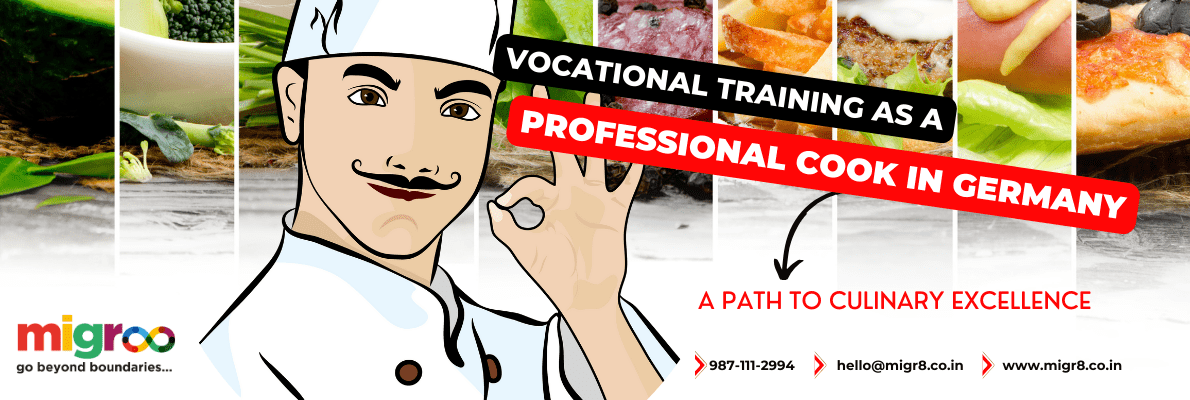Germany is renowned for its rich culinary traditions and diverse food culture, making it an excellent destination for aspiring chefs. Vocational training as a professional cook in Germany offers a unique opportunity to gain practical skills and theoretical knowledge in a structured environment. This blog explores the benefits, structure, and opportunities available through culinary training in Germany.
Why Choose Vocational Training in Germany?
- High Standards of Education: Germany is known for its dual education system, which combines classroom learning with hands-on experience in real-world settings. This approach ensures that students receive comprehensive training that prepares them for the demands of the culinary industry.
- Diverse Culinary Landscape: With regional specialties ranging from hearty Bavarian dishes to fresh seafood from the North Sea, Germany’s culinary scene is vibrant and varied. Training in such an environment exposes students to a wide array of techniques and flavors.
- Career Opportunities: The demand for skilled cooks is high, not only in Germany but also across Europe. Completing vocational training opens doors to various career paths, including positions in restaurants, hotels, catering services, and even starting your own culinary venture.
The Structure of Vocational Training
Vocational training for cooks in Germany typically lasts three years and follows a dual system. Here’s how it generally works:
1. Classroom Instruction
Students attend a vocational school (Berufsschule) for part of the week. Here, they learn about:
- Culinary Techniques: Mastering basic and advanced cooking skills.
- Nutrition: Understanding dietary needs and meal planning.
- Food Safety: Learning about hygiene standards and food handling practices.
- Menu Planning: Developing skills in creating balanced and appealing menus.
2. Practical Training
The other half of the week is spent in an apprenticeship at a restaurant, hotel, or catering business. This practical experience is invaluable, allowing students to:
- Work Under Professional Chefs: Gain firsthand knowledge and mentorship from experienced culinary professionals.
- Develop Time Management Skills: Learn to work efficiently in a fast-paced kitchen environment.
- Practice Teamwork: Collaborate with kitchen staff to create dishes and manage service.
3. Examinations and Certification
At the end of the training period, students must pass both practical and theoretical examinations to become certified cooks (Koch/Köchin). This certification is recognized throughout Germany and in many other countries.
Benefits of Vocational Training
- Hands-On Experience: Students gain practical skills that are immediately applicable in the workplace, giving them a competitive edge.
- Networking Opportunities: Training in established kitchens allows students to build relationships within the industry, which can be beneficial for future job placements.
- Culinary Innovation: Exposure to modern cooking techniques and trends, such as molecular gastronomy and farm-to-table concepts, prepares students for contemporary culinary challenges.
- Language Skills: For international students, this training offers the opportunity to improve German language skills, which is essential for working in the local culinary scene.
Career Opportunities Post-Training
Graduates of vocational training programs have a wide array of career options:
- Restaurant Chef: Working in various dining establishments, from fine dining to casual eateries.
- Pastry Chef: Specializing in desserts, baked goods, and confections.
- Catering Manager: Overseeing large events and ensuring high-quality food service.
- Food Stylist: Working with photographers and media to present food attractively for publications and advertisements.
- Entrepreneur: Starting a personal brand, food truck, or restaurant.
Conclusion
Vocational training as a professional cook in Germany is a pathway to culinary excellence, combining theoretical knowledge with practical experience. The rigorous education system and diverse culinary landscape provide aspiring chefs with the tools they need to succeed. With a strong demand for skilled cooks, graduates can look forward to exciting career opportunities both in Germany and internationally. Whether you’re a local or an international student, embarking on this culinary journey can lead to a fulfilling and creative career in the culinary arts.





